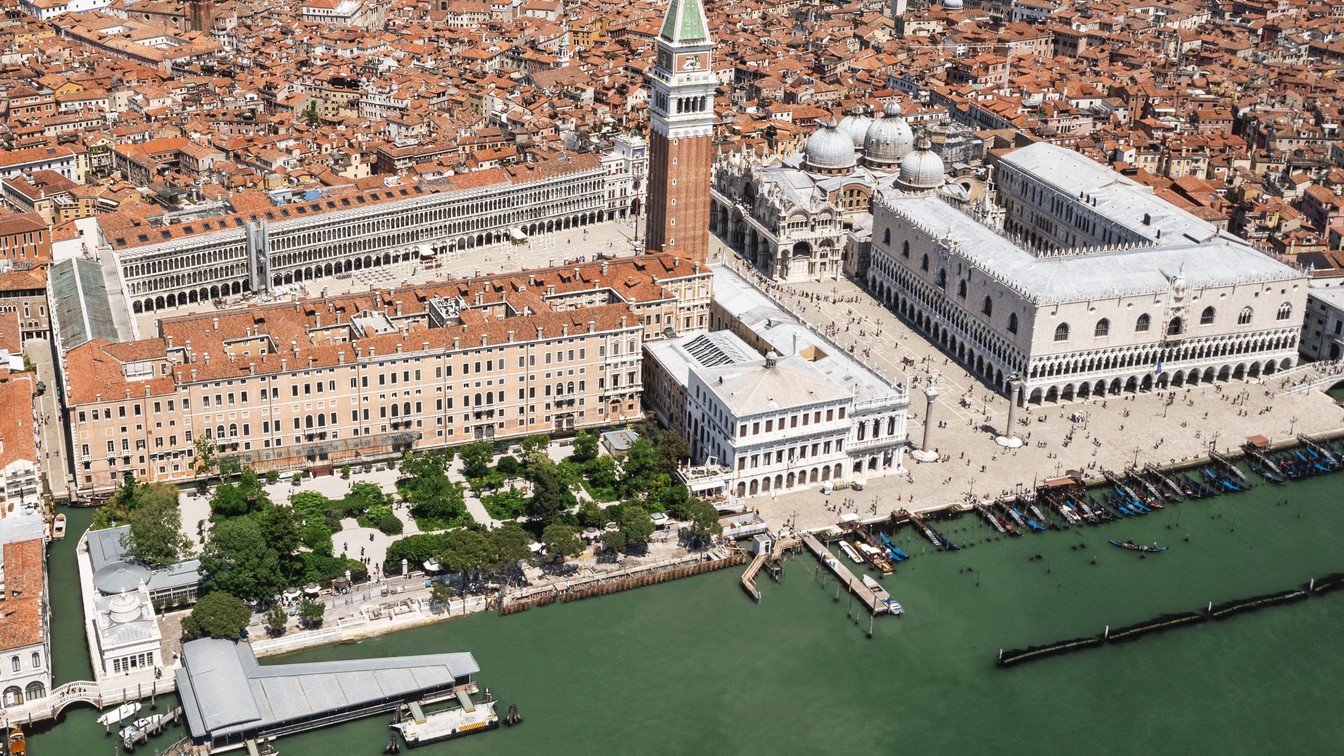

Gardens are representative of Italian excellence; they are “that profound beauty, beyond mere aesthetics, and fulfill a very important social and community role. Unfortunately, our gardens have been forgotten, whereas we must instead bring them, the patrons and gardeners back to the heart of an important discourse for the value of our country,” stresses Adele Re Rebaudengo, Chair of the Venice Gardens Foundation, who is more than just talk. From 2014 to 2019, this multifaceted lady promoted the restoration of the Royal Gardens in Venice: a green area of 6,000 square yards a short walk from Piazza San Marco, established by Napoleon in 1807. Born in Turin but Venetian by adoption, in 2012, Adele moved to the Lagoon, where she bought a house.
“I am one of those people who consider Venice the most beautiful city in the world,” she explains, “and it has certainly been the great love of my life, since the first time I saw it at the age of 12. The city has been for me a source of great happiness and, when I moved to Venice over 11 years ago, I thought I should give something back to the city as a sign of gratitude. I immediately felt that the gardens were an important, urgent and perhaps a little forgotten aspect.” The Venice Gardens Foundation, of which she is chair, was founded in 2014 with the aim of promoting, developing and implementing projects to protect botanical and artistic heritage.
“The last two years of COVID have demonstrated very clearly how important it is to be able to find and connect with nature,” she continues. “When everything was closed in the cities, people could meet in the gardens, find a welcoming and well-kept place, and they understood the importance and also the comfort that gardens are able to offer.” Hence “the urgency and the reasons for restoring the gardens of Venice,” starting with the Royal gardens.
But Adele Re Rebaudengo's commitment doesn't stop there: in January, the Foundation will begin work to restore some other very important gardens in the city, but for now the name is strictly under wraps. At the Royal Gardens, the watchwords were Italianness and responsibility
"In the gardens there is already a huge commitment to reuse and recycling
“When I thought of entrusting the project to the garden designer Paolo Pejrone—or, as he likes to be called, the gardener—for his professionalism,” she says, “some people asked me why I hadn't commissioned a foreign architect, which I find absurd. Instead, we have completed an entirely Italian project: the foundation, the architects, including the backer of the whole operation, our partner Generali is Italian, as well as the manager of the café, Illy. We are extraordinary and we must continue to value our excellence; we have extraordinary professionals and craftsmen.” Then there is the issue of sustainability, which at the Venice Gardens Foundation is called “responsibility”. “In the Royal Gardens,” she continues, “there is already a huge commitment to reuse and recycling. The compost from the café pavilion is recovered and processed over two months to become fertilizer and the walkways are gravel only.” And, in the new project that will be launched next year, “there will be a well and water collection from the roofs, for irrigation purposes, with 442 yards of pergolas.”
We need investments for the restoration of both public and private gardens
In short, we must focus on “green heritage” as a strategic asset for our country, both in terms of tourist attractiveness but also in terms of the development of social well-being. And there are three cornerstones: “We need investments for the restoration of both public and private gardens, and I must say that Minister Franceschini [TN: Italian Culture Minister] has been very, very attentive and the PNRR [TN: National Recovery and Resilience Plan] foresees large amounts of funding. The second point is that we must find the budgets needed to maintain them and the third is skilled labor: it is essential to employ passionate and expert gardeners,” she says, because it is not just a job but “an act of love and dedication.”
Adele Re Reabudengo transitioned from the legal profession to a passion for theater, art and photography, curating festivals, exhibitions and art publications with the masters of international photography in collaboration with leading museums and institutions. A varied and rich career path and only at first glance “disconnected.” In reality there is a “common thread” that unites these three important stages of her life. “With the legal practice,” she concludes, “you try, with your own tiny grain of sand in the desert, to make life better. Art is a way to reach the absolute, to elevate yourself. To date, my experience with gardens and, more generally, with nature represents a return to childhood; I was lucky enough to grow up in a very beautiful historic garden in contact with nature and it taught me many things and led me to understand the true values we must follow.”